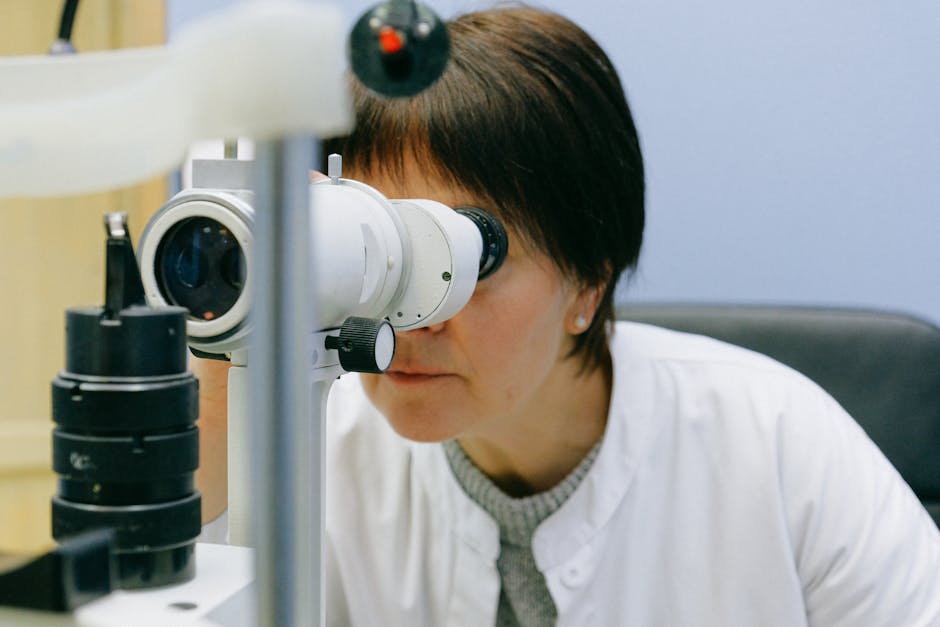The Critical Role of Metal Finishing in Enhancing Product Quality and Longevity
Metal finishing plays a crucial role in elevating the quality and durability of products. It encompasses processes such as plating, coating, and surface treatment, which are essential for ensuring the longevity and performance of metal components.
By providing corrosion resistance, improving aesthetic appeal, and enhancing functional attributes, metal finishing significantly contributes to the overall quality of the end product. Furthermore, it plays a pivotal role in meeting performance standards, ensuring reliability, and ultimately, enhancing customer satisfaction.
Understanding the criticality of metal finishing in enhancing product quality and longevity is imperative for manufacturers and consumers alike, as it directly impacts the functionality and lifespan of a wide range of industrial and consumer products.
Key Takeaways
- Metal finishing techniques such as plating, anodising, and powder coating enhance product durability and extend their lifespan.
- Metal finishing improves the aesthetic appeal of products, contributing to customer satisfaction and brand loyalty.
- Coating technologies, such as corrosion-resistant coatings and protective films, enhance product performance and longevity.
- Metal finishing ensures that products meet performance standards and provides assurance and dependability in industrial applications.
Importance of Corrosion Resistance

The corrosion resistance of metal finishing is a critical factor in ensuring the long-term durability and quality of products. Material selection plays a pivotal role in determining the effectiveness of corrosion resistance. Different metals and alloys exhibit varying degrees of susceptibility to corrosion, making it imperative to choose the most appropriate material for a specific application. Factors such as environmental conditions, exposure to moisture, and the presence of corrosive substances must be carefully considered during material selection to enhance the overall corrosion resistance of the finished product.
Furthermore, the environmental impact of metal finishing processes is a significant consideration in the quest for corrosion resistance. Sustainable and eco-friendly metal finishing methods not only contribute to the longevity of the product but also aline with environmental regulations and corporate social responsibility. Minimising the use of hazardous chemicals, optimising energy consumption, and implementing efficient waste management practises are essential for reducing the environmental footprint of metal finishing processes while ensuring excellent corrosion resistance in the finished products.
Ultimately, prioritising corrosion resistance through meticulous material selection and environmentally conscious finishing processes is paramount in achieving long-lasting, high-quality products.
Enhancing Aesthetic Appeal

Enhancing aesthetic appeal through metal finishing involves meticulous attention to surface texture and visual presentation. Metal finishing techniques such as polishing, buffing, and electroplating not only enhance the appearance of products but also contribute to improved functionality and surface protection. By carefully refining surface textures and applying attractive coatings, metal finishing can significantly improve the visual appeal of a wide range of products, from consumer electronics to automotive parts.
Furthermore, metal finishing plays a crucial role in creating a lasting visual impression, which is particularly important for products intended for consumer use. Aesthetic appeal is often closely linked to perceived quality, and a well-finished metal product can convey a sense of craftsmanship and durability. This not only enhances the product’s marketability but also contributes to customer satisfaction and brand loyalty.
Functional Improvement Through Coating

Functional improvement through coating is a key aspect of metal finishing that enhances product performance and durability. Coating technologies play a crucial role in providing surface protection, extending the lifespan of components, and enhancing material performance. This not only ensures the longevity of the products but also contributes to their overall functionality and reliability.
Improved Durability: Coating technologies such as corrosion-resistant coatings and protective films provide a barrier against environmental elements, preventing degradation and increasing the lifespan of metal products. This instils confidence in consumers, knowing that the products can withstand harsh conditions and maintain their functionality over time.
Enhanced Performance: Functional enhancements through coatings, such as friction-reducing coatings and heat-resistant finishes, contribute to improved material performance. This results in products that operate more efficiently, reliably, and with reduced maintenance requirements, thereby adding value to the end-users and enhancing their overall experience with the products.
Impact on Durability and Reliability

Coating technologies, integral to metal finishing processes, significantly impact the durability and reliability of products by providing essential protection and performance enhancements. Durability enhancement is achieved through the application of corrosion-resistant coatings, which shield the metal substrate from environmental factors such as moisture, chemicals, and abrasion. This protection extends the lifespan of the finished product, reducing the need for frequent repairs or replacements and thereby contributing to its overall reliability. Additionally, coatings can improve the reliability of products by enhancing their resistance to wear and tear, ensuring consistent performance over an extended period. These factors are vital in various industries, including automotive, aerospace, and electronics, where product longevity and reliability are paramount. The table below illustrates the impact of coating technologies on durability and reliability, highlighting their crucial role in ensuring the long-term performance of metal-finished products.
| Durability Enhancement | Reliability Improvement |
|---|---|
| Corrosion resistance | Wear resistance |
| Extended product lifespan | Consistent performance |
| Reduced need for repairs | Enhanced product quality |
| Protection from abrasion | Long-term functionality |
Role in Ensuring Performance Standards

Metal finishing plays a crucial role in ensuring that products meet performance standards by enhancing their durability and strength.
Additionally, the process significantly improves corrosion resistance, thus contributing to the longevity and reliability of the finished metal products.
These factors are essential in maintaining the quality and performance of the products over time.
Enhancing Durability and Strength
The application of specialised finishing techniques plays a crucial role in ensuring the durability and strength of metal products, meeting stringent performance standards in various industries. This process not only enhances the durability of the metal but also reenforces its strength, resulting in products that can withstand the test of time and perform reliably in demanding conditions.
Consider the emotional impact of the following:
- Durability enhancement:
- Peace of mind knowing that the product will last longer and require fewer replacements, reducing downtime and maintenance costs.
- Confidence in the reliability of the metal product, providing a sense of security and trust in its performance.
Metal finishing techniques not only enhance the physical properties of the product but also provide a sense of assurance and dependability, crucial in various industrial applications.
Improving Corrosion Resistance Significantly
An effective metal finishing process not only enhances the durability and strength of the product but also plays a critical role in significantly improving its corrosion resistance, ensuring that it meets and exceeds performance standards in various industries. By applying the right metal finishing techniques, manufacturers can increase the longevity of their products and provide superior surface protection, thereby reducing the risk of corrosion-related issues. The table below highlights the impact of metal finishing on corrosion resistance and product performance.
| Metal Finishing Benefits | Impact |
|---|---|
| Increased Longevity | |
| Surface Protection |
This emphasis on corrosion resistance through metal finishing underscores its pivotal role in ensuring that products maintain their quality and functionality over an extended period, meeting the rigorous demands of diverse industrial applications.
Customer Satisfaction and Longevity

Enhanced product durability resulting from high-quality metal finishing not only ensures customer satisfaction but also contributes to long-term customer retention.
The longevity of the finished products positively impacts the overall customer experience, leading to increased trust in the brand and potentially generating positive word-of-mouth referrals.
These benefits highlight the critical role of metal finishing in not only enhancing product quality but also in fostering lasting customer relationships.
Enhanced Product Durability
Product durability plays a crucial role in ensuring customer satisfaction and enhancing product longevity through metal finishing techniques.
The use of metal finishing processes such as plating, anodising, and powder coating results in improved strength and surface protection, ultimately extending the lifespan of products.
This enhanced durability brings peace of mind to customers, assuring them that the products they invest in will withstand the test of time.
Moreover, knowing that their purchases are built to last creates a sense of trust and satisfaction in the brand, fostering long-term customer loyalty.
When products exhibit enhanced durability due to quality metal finishing, customers can feel confident in their buying decisions, knowing that they are getting long-lasting, reliable products that will serve them well for years to come.
Customer Retention Benefits
The sustained customer satisfaction resulting from the longevity of metal-finished products is a key determinant of successful customer retention. When metal finishing is employed to enhance product longevity, it directly contributes to customer loyalty and satisfaction. Customers value products that maintain their quality and appearance over time, and metal finishing plays a critical role in achieving this.
By ensuring that the metal-finished products withstand the test of time, manufacturers can increase customer satisfaction, leading to repeat business and positive word-of-mouth referrals. Ultimately, the longevity of metal-finished products not only reflects positively on the brand’s reputation but also fosters a strong sense of trust and reliability amongst customers.
Therefore, investing in metal finishing for product longevity yields substantial customer retention benefits, solidifying the brand’s position in the market.
Frequently Asked Questions
What Are the Environmental Impacts of Metal Finishing Processes?
The environmental impact of metal finishing processes can be significant, with potential for waste generation and chemical emissions. However, sustainable practises, such as recycling and use of eco-friendly chemicals, can mitigate these impacts and promote environmental responsibility.
Are There Any Regulations or Standards That Metal Finishing Processes Must Adhere To?
Regulatory compliance for metal finishing processes is crucial to ensure environmental and safety standards are met. Industry standards like ISO 9001 and ASTM International govern practises, emphasising quality control and environmental responsibility. Compliance is integral to maintaining credibility and trust.
How Does Metal Finishing Affect the Overall Cost of a Product?
Metal finishing significantly impacts the overall cost of a product by enhancing durability, corrosion resistance, and aesthetic appeal. It improves manufacturing efficiency by reducing the need for frequent replacements and maintenance, leading to long-term cost savings.
Can Metal Finishing Be Applied to All Types of Metals, or Are There Limitations?
Metal finishing can be applied to a wide range of metals including steel, aluminium, copper, and more. However, certain metals may have limitations due to their composition, which can affect the adhesion and durability of the finish. Understanding the compatibility and limitations of metal finishing is essential for its successful application.
What Are the Latest Advancements in Metal Finishing Technology?
The latest advancements in metal finishing technology have revolutionised surface treatment and coating processes. Innovations in material science and application methods have elevated the durability and aesthetics of metal products, akin to a technological renaissance.
Conclusion
In conclusion, metal finishing plays a critical role in enhancing product quality and longevity. It achieves this by providing corrosion resistance, enhancing aesthetic appeal, improving functionality through coating, increasing durability and reliability, and ensuring performance standards.
This process ultimately leads to customer satisfaction and long-term product longevity. Just as a skilled craftsman applies the finishing touches to a masterpiece, metal finishing adds the final polish to ensure the lasting quality and value of a product.
Contact us to discuss our services now!
